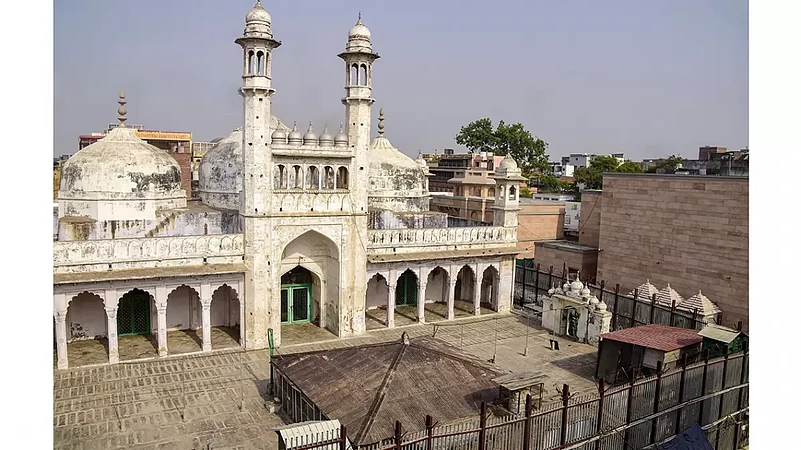A fast-track court in Uttar Pradesh today will deliver its verdict today on a plea seeking worship of the 'Shivling' that was allegedly found inside the Gyanvapi Mosque premises as claimed by the Hindu side.
The Civil Judge Senior Division Fast Track court will deliver its verdict on the three main demands by the litgant which include the permission for the immediate beginning of prayer of Swayambhu Jyotirlinga Bhagwan Vishweshwar, the handing over of the entire Gyanvapi complex to the Hindus, and banning the entry of Muslims inside the premises of the Gyanvapi complex, according to a report by ANI.
Currently, the Muslim side is allowed to offer prayers.
Earlier, advocate Anupam Dwivedi, appearing for the Hindu side, said that the fast-track court of Civil Judge (Senior Division) Mahendra Pandey heard the arguments of both sides and reserved its order on the suit till November 8.
In an earlier hearing in October, the Varanasi court had refused to allow a 'scientific investigation' of the purported 'Shivling'.
The Court ruled that the plea for 'scientific investigation' cannot be allowed since the Supreme Court has ordered the sealing of the place where the 'Shivling' was found, according to legal news website Lawbeat.
When the Muslim side demanded that the structure found was a 'fountain', the Hindu side, on September 22, had filed a plea demanding carbon dating of the structure they claimed to be a 'Shivling' found inside the Gyanvapi Mosque's wazukhana.
Carbon dating is a scientific process used commonly in archaeology to understand the age of an object.
The Hindu petitioners seeking carbon dating have said they would go to higher courts to pursue their cause.
"We will move to Supreme Court against this order and challenge it there. I cannot announce the date as of now, but we will soon challenge this order in Supreme Court," said Advocate Vishnu Jain, appearing for the petitioners.
On September 29, in another hearing, the Hindu side demanded a scientific investigation of the 'Shivling' by the Archaeological Survey of India (ASI). However, the Varanashi Court had rejected the plea by stating, "It would not be proper to order the survey of Archaeological Survey of India (ASI) and by giving such order the age, nature, and structure of the said Shivling is known, even this does not imply the possibility of a just solution."
Further, referring to the order of May 17, the Varanasi Court earlier said that if the Shivling is damaged during the process of investigation, then that would stand in direct violation of the Supreme Court order.
In its order, the apex court had said directed the District Magistrate of Varanasi to ensure the protection of the area inside the Gyanvapi-Shringar Gauri complex where a 'shivling' was said to be found.


























